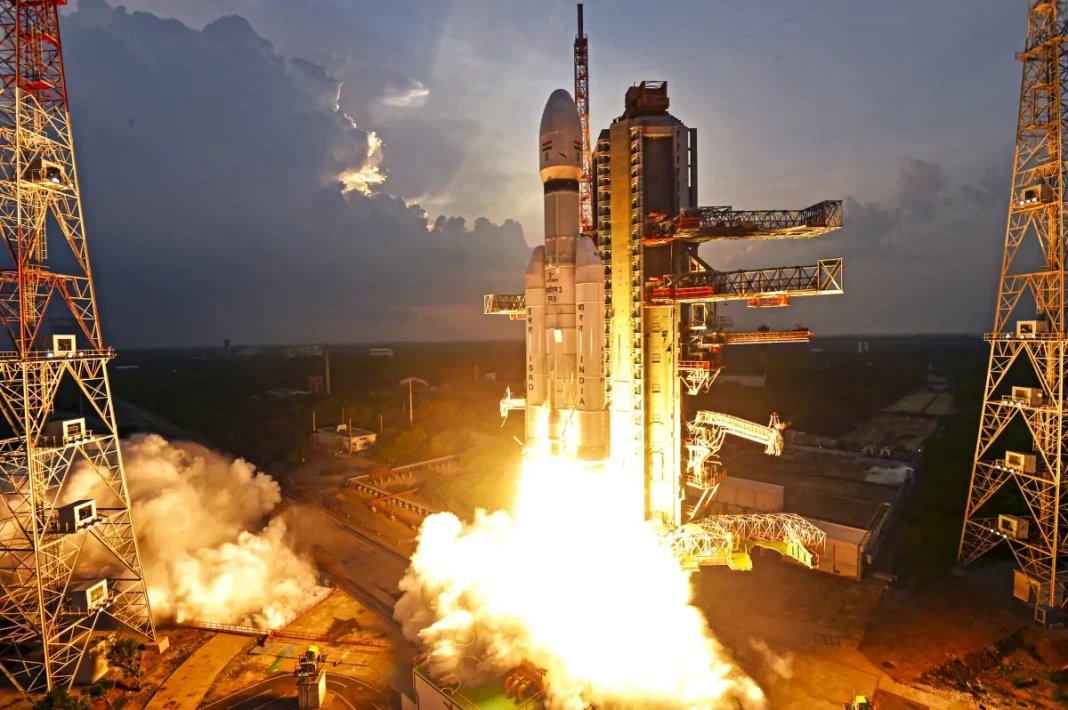Key Takeaways
- ISRO plans 7 more launches this financial year, including first fully industry-built PSLV
- Gaganyaan human spaceflight on track for 2027; Chandrayaan-4 sample return targeted for 2028
- Indian Space Station first module planned for 2028, full station by 2035
- India’s space economy projected to grow from $8.2B to $44B by 2033
ISRO is entering its most ambitious phase with simultaneous Moon missions, space station development, and accelerated launch activities, chairman V Narayanan revealed.
Launch Capacity Expansion
India’s space agency will conduct seven additional rocket launches before March 2025, featuring commercial satellites and missions using PSLV and GSLV rockets. A landmark achievement will be the first PSLV rocket entirely manufactured by Indian private companies.
ISRO is simultaneously working to triple its annual spacecraft production capacity within three years to meet growing mission demands.
Lunar Exploration Roadmap
India’s first human spaceflight mission, Gaganyaan, remains firmly scheduled for 2027. “The crewed mission was always planned for 2027, and we are holding on to that date,” Narayanan confirmed. Three uncrewed test missions will precede the historic astronaut launch.
The government has approved Chandrayaan-4, India’s most complex lunar sample-return mission targeting 2028 launch. This would place India among only four nations capable of returning Moon samples.
Key Lunar Programs:
- LUPEX: Joint India-Japan mission to explore lunar south pole water ice
- Moon Landing: PM Modi has directed ISRO to plan Indian astronaut Moon landing by 2040
Indian Space Station Development
ISRO has commenced work on India’s own space station, with completion targeted for 2035. The first of five modules is planned for orbital placement by 2028. This would establish India as the third nation to operate a permanent space outpost.
Private Sector Growth
Space sector reforms have triggered explosive private participation, with over 450 industries and 330 startups now active—a dramatic increase from just three startups a few years ago. The 2020 regulatory reforms enabled private rocket development, satellite manufacturing, and commercial launch services.
India currently holds approximately 2% of the global space economy share, with ISRO targeting 8% by 2030. The domestic space economy, valued at $8.2 billion, is projected to reach $44 billion by 2033.




